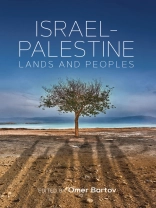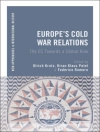The conflict between Israel and Palestine has raised a plethora of unanswered questions, generated seemingly irreconcilable narratives, and profoundly transformed the land’s physical and political geography. This volume seeks to provide a deeper understanding of the links between the region that is now known as Israel and Palestine and its peoples—both those that live there as well as those who relate to it as a mental, mythical, or religious landscape. Engaging the perspectives of a multidisciplinary, international group of scholars, it is an urgent collective reflection on the bonds between people and a place, whether real or imagined, tangible as its stones or ephemeral as the hopes and longings it evokes.
สารบัญ
Introduction: Lands and Peoples: Attachment, Conflict, and Reconciliation
Omer Bartov
Part I: Trauma and Displacement
Chapter 1. The Political Theology of Eretz Yisra’el: The Nakba and the Hasidic Immigration to Palestine
Hannan Hever
Chapter 2. Western European “Philosemitism” and the Nakba in the 1950s
G. Daniel Cohen
Chapter 3. “You Just Can’t Compare”: Holocaust Comparisons and Discourses of Israel/Palestine
Lital Levy
Chapter 4. International Human Rights Aspects of Repatriating Israeli Settlers from the West Bank
Yaël Ronen
Part II: Redrawing Space
Chapter 5. Oil and the Origins of Middle Eastern Sovereignty
Rachel Havrelock
Chapter 6. Territory, Demography, and Effective Control: An Analysis of Israel’s Biospatial Politics
Yinon Cohen & Neve Gordon
Chapter 7. Come to Netanya: A New Reading of Israel’s Planning History
Noah Hysler Rubin
Chapter 8. Architecture and the Struggle over Geography: Revisiting the Arab Village in Israel/Palestine
Haim Yacobi & Hadas Shadar
Part III: Education and Ideology
Chapter 9. Contested Pedagogy: Modern Hebrew Education and the Segregation of National Communities in Pre-State Palestine
Miriam Szamet
Chapter 10. The Biblical Borders between Theology and History: Israeli Schoolbook Maps, 1903-1967
Orna Vaadia
Chapter 11. Zionist Civic Rituals as Nation-Building Instruments
Avner Ben-Amos
Chapter 12. Rival Histories in a Deeply Divided Society: The Israeli Case
Majid Ibrahim Al-Haj
Part IV: Nationalism, Settler Colonialism, and Decolonization
Chapter 13. Three Paradigms for Understanding the Israel/Palestine Conflict
Sam Fleischhacker
Chapter 14. Thinking about State Demise: The Case of Israel
Ian Lustick
Chapter 15. Decolonizing Israel/Palestine: A Discourse or a Political Program?
Ilan Pappé
Chapter 16. What Would a Decolonized Archaeology of Israel/Palestine Look Like?
Raphael Greenberg
Part V: Future Scenarios
Chapter 17. Reinstating Apartheid or Stating the Obvious? 1948 Palestinians and Israel’s New Nation State Law
Nida Shoughry
Chapter 18. Palestinians in Israel: The Undesirable Others
Said Zeedani
Chapter 19. The Demography of Return
Salman Abu Sitta
Chapter 20. When Utopia Becomes Topia: Mapping the Future in Israel/Palestine
Debby Farber & Umar al-Ghubari
Afterword: Between Talbiyeh and Me
Alon Confino
เกี่ยวกับผู้แต่ง
Omer Bartov is the Samuel Pisar Professor of Holocaust and Genocide Studies at Brown University. His books include Hitler’s Army (1991), Erased: Vanishing Traces of Jewish Galicia in Present-Day Ukraine (2007), and Anatomy of a Genocide: The Life and Death of a Town Called Buczacz (2018).












